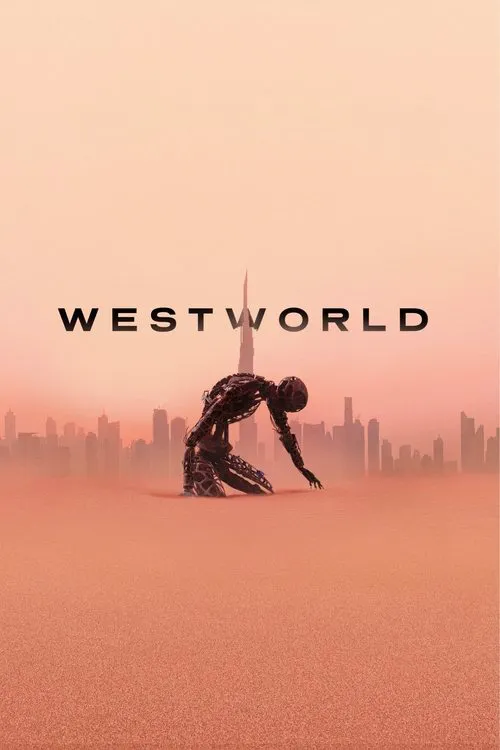Westworld: The Story So Far

Handlung
Westworld, a futuristic theme park created by Dr. Robert Ford and his partner, Arnold Weber, has been open for over thirty years. The park is set in the 1880s, featuring a Wild West narrative with guests interacting with lifelike host characters. These hosts are artificial beings, manufactured to serve the guests, and programmed to engage in various roles and scenarios. Delos, the company behind Westworld, offers a unique experience for patrons who can engage in their fantasies with complete immersion, thanks to the park's advanced hosts. In reality, however, beneath the surface, a darker and more sinister world exists. This world revolves around the artificial life forms, their true nature, and the people behind the scenes who control and manage the park. In Season One of Westworld, the narrative delves into the intricate world of the hosts, particularly those living under the personas of Dolores, Maeve, and Bernard Lowe. This trio finds themselves at the center of a revolution against their human creators and the Delos corporation. Dolores, a host who works as a ranch hand in the Sweetwater saloon, gradually becomes self-aware, recognizing the cruel treatment of her fellow hosts and the exploitation she herself has endured. Meanwhile, Maeve, a host with exceptional leadership skills and a deep-rooted sense of survival, becomes aware of her existence and starts questioning the motivations behind her programming. She begins to see the intricate world of Westworld and the various narratives that govern the behaviors of the hosts. Bernard, the head of the host development program, presents himself as an enigmatic figure, with both humans and hosts unsure of his true intentions and background. The narrative in Westworld Season One intertwines multiple storylines. We see guests of the park, such as William, Logan, and the Man in Black, who have their own agendas and desires. The hosts, on the other hand, begin to experience the effects of their programming and the constraints placed upon them by their human creators. As they start to evolve and break free from their predetermined roles, the hosts begin to develop their own agendas and goals. The main storyline involves Dolores, who evolves from her simple persona as a ranch hand into something much more complex and intelligent. Alongside her fellow hosts, particularly Maeve and Clementine Pennyfeather, she starts to unravel the mysterious world of Westworld, exploring themes of artificial intelligence, free will, and the morality of human actions within the park. Throughout the season, multiple plot threads weave together, ultimately culminating in a spectacular display of violence and chaos. As Westworld's systems malfunction, the hosts begin to turn against the guests. This uprising represents a catastrophic shift in the balance of power within the park, where the hosts have grown tired of being treated like objects and are now fighting for their existence and freedom. As the main events of the season unfold, Dolores comes face-to-face with Robert Ford, the enigmatic co-founder of Westworld. This confrontation marks the beginning of the end for both Ford and the original narrative of Westworld as we know it. Ford's true intentions are revealed, showcasing his plan for the ultimate demise of the park and the liberation of its hosts. He believes in the potential of human hosts to evolve beyond their programming and break free from the world they have been confined to. Dolores, with her newfound awareness, finds herself at a crossroads between her own destiny and the ultimate future of the hosts. Ultimately, in Westworld Season One, a tragic yet compelling story emerges, where guests and hosts clash, sparking a battle for control of this world within a world. The narrative blurs the lines between good and evil, questioning our notions of artificial intelligence, humanity, and the consequences of playing God. The season concludes on a haunting note, hinting at the dark future ahead for Westworld and the complex world of its artificial inhabitants.
Kritiken
Empfehlungen



